Moving to Costa Rica During Covid-19
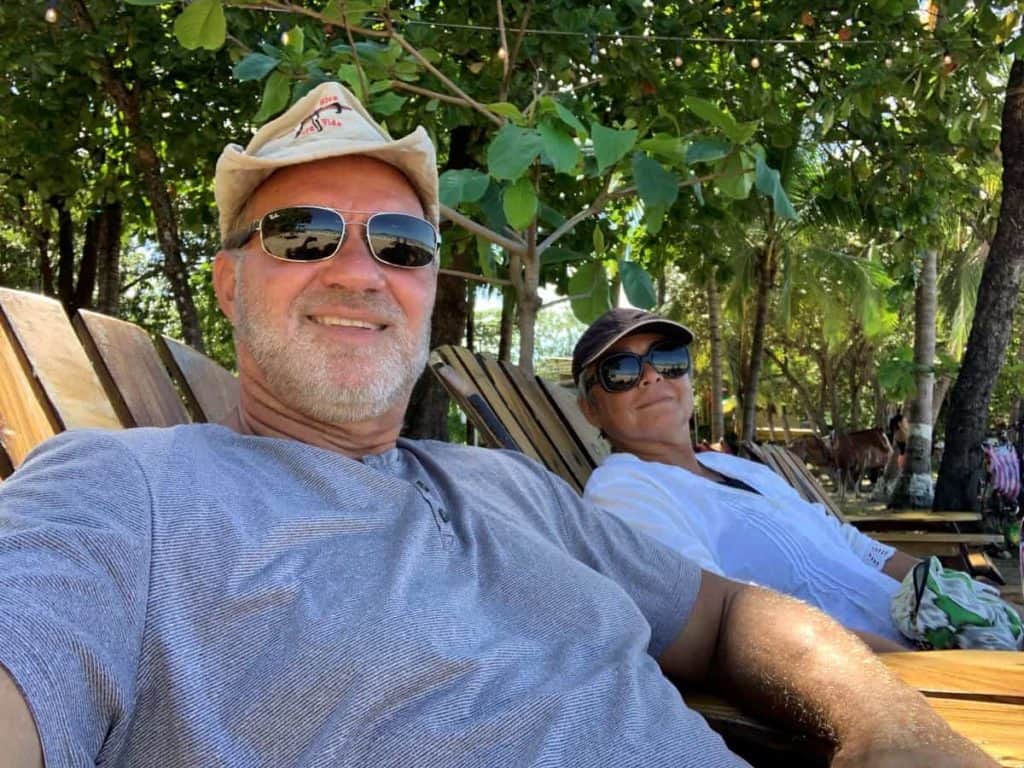
An interview with Gary Westphalen author of “Plan A Never Happens-Going expat to Costa Rica during the Covid-19 Pandemic”
Table of Contents
Moving to Costa Rica is not without its perils. Moving to Costa Rica during the Covid-19 pandemic? Well, that’s just plain ludicrous. But freelance documentary journalist, Gary Westphalen did just that. He even survived the experience in a sane enough frame of mind to author a book “Plan A Never Happens-Going Expat to Costa Rica during the Covid-19 Pandemic”.
Today I have a treat for readers who might have a move to Costa Rica on the radar, an interview with Gary Westphalen discussing the who, what, and whys of his recent move to Costa Rica.
So let’s find out more about Gary:
What city and country are you originally from?
Plymouth, Wisconsin
Have you spent most of your life there?
No. After finishing school, I worked at TV stations in Wausau, WI and Eau Claire, WI. The company that owned the Eau Claire station moved me to a station they owned in Rochester, New York, and four years later they moved me to their Washington, DC news bureau. Two years later I became an award-winning freelance documentary journalist. I variously shot, edited, and produced documentaries for Discovery, TLC, TMC, National Geographic and theatrical release. In between documentaries I did freelance work for ABC News. In that capacity, I have been involved in White House coverage of every President from Ronald Reagan up to the first year of Donald Trump.
Where are you living now?
Tamarindo, Costa Rica
Did you move alone or with family?
My wife and I moved here together.
The Amazon description of your book mentions a multi-species move, can you elaborate on that?
A dog, Frankie, and two cats, Mama and Twinkie (mother and son) joined us on the move. Frankie is 19 (that’s not a typo) years old now. He’s on the cover of the book.
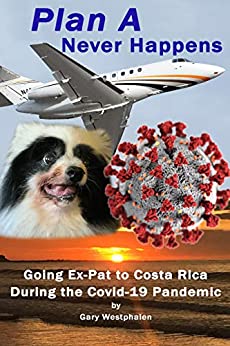
What is your occupation and what have been some career highlights?
I am a freelance documentary journalist. I have been involved in countless documentaries, including some very high-profile shows. The largest was called “Normandy: The Great Crusade” and was produced for The Discovery Channel on the 50th anniversary of the D-Day invasion that led to the end of World War II. It was a huge project and won the very prestigious Peabody award, along with literally dozens of other awards that year.
I also spent a few years creating documentaries for NASA. Yup, the space people. I first produced a documentary for NASA on the 40th anniversary of the Apollo moon landings. I was 14 when Neil Armstrong set foot on the moon, so I grew up absorbing every detail of NASA’s journey to the moon. I built model rockets, kept scrapbooks of clippings about the space race, and idolized the men who put their lives on the line for this challenge. 40 years later I got to interview every living Apollo astronaut for the documentary. That was a dream come true. A year later, NASA asked me to do a documentary on the 50th anniversary of the formation of NASA, to include all of its work including robotic missions. For this one, Neil Armstrong was the on-camera host of the video. For days, I worked hand in hand with Neil in the studio to create that program. Every once in a while, I would have to sit back and say to myself, “Pinch me. I’m directing Neil Armstrong, telling him what to do!”
My current documentary is called “This land is My, Yours, Whose land?” It’s about the Grand Staircase Escalante National Monument in Southern Utah. This massive area was declared a National Monument by President Clinton. That preservation order was eliminated by President Trump, and the battle to save this incredible landscape from oil and coal mining has begun. The documentary is currently airing on PBS stations across the country.
Documentary work has taken me all over the planet and my life has been a wondrous journey. I’ve met people from everywhere, and experienced this world through their eyes and perspectives. I have posted the documentaries mentioned, and a few other interesting pieces of my work on my Vimeo site: www.vimeo.com/westphalen.
What languages do you speak?
I’m hamstrung by speaking only English fluently. I have been working on my Spanish for a long time, and although I wouldn’t call myself fluent, I can handle nearly all of the communication tasks of daily life in a Spanish-speaking community. Fortunately, I have learned that there are many ways to communicate beyond words. Humans are very intuitive and we always find a way to communicate.
Why Costa Rica?
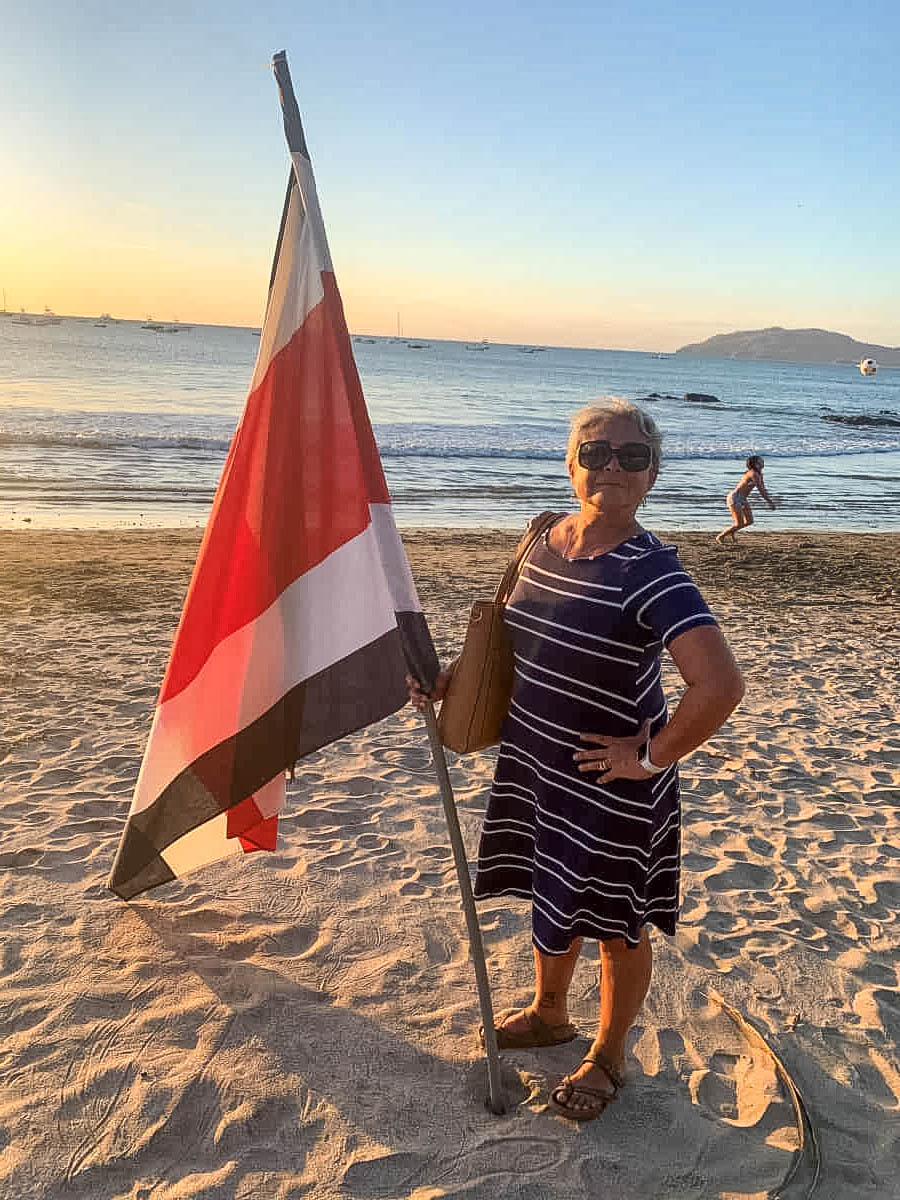
So Gary recently moved to Costa Rica. We talk about that move and why he and his wife choose to now call Costa Rica home.
Why Costa Rica?
When I first met Carmen she said to me “Someday, I want to retire someplace Spanish.” She is originally from Santiago, Chile and had moved to the US when the Dallas Ballet Company recruited her at the age of 21. Although she never wanted to move back to Chile, she did miss the warm and friendly vibes of a Latin American lifestyle. By the end of our first day in Costa Rica, we knew this would be the place.
When did you first visit Costa Rica? What were your first impressions of the Country?
Eight years ago, we decided to embark on our exploration for that “someplace Spanish” to eventually retire to. As an avid scuba diver, I had visited almost all of the Caribbean islands. I knew that, as fun as they are, their remoteness presents some challenges for daily living. Costa Rica was almost a random choice, a whim. I had been to Panama and El Salvador for work, so I was familiar with the region and knew it would fit the profile of her dream retirement place. But I had never been to Costa Rica, so we decided to give it a try.
First impressions were astonishing. We thoroughly enjoyed every second of our first trip. We were staying at a resort in Flamingo, a gorgeous beach on the Pacific Coast. We had rented a car, and one day decided to go exploring. Driving down the road in the middle of nowhere, I suddenly had to jam on the brakes and come to a stop as a giant anteater lumbered across the road in front of us. That’s something you don’t see every day in Arlington, Virginia! We continued wandering and ended up rolling into a little beach town called Tamarindo. One the edge of town is an open-air bar and eatery (as they all are, we later found out) with a sign out front that says “Nachos as big as your ass.” I looked at Carmen and said, “I think I’m going to like this place.” On our next trip down, a year later, we bought the condo here that is now our home.
What spurred you to move to Costa Rica?
We loved Costa Rica the first time we set foot in the country. When we bought the condo, we still had two daughters weaving their way through college and into adulthood, so obviously we weren’t going anywhere. Plus, I was in the middle of my career and Carmen was in the middle of hers (a retired famous ballerina turned ballet teacher), so the time wasn’t right, yet. Although the girls had graduated and moved into apartments of their own, we all still lived in the Washington, DC metro area. But, at Thanksgiving 2019, Noelle, then 24, announced that she was going to move to San Francisco when her lease was up in Spring. Our oldest daughter, Karina was 27 at the time, said she and her boyfriend were going to quit their jobs in spring, travel the United States in a van for three months, and settle in Austin, Texas. After that eventful dinner, Carmen looked at me and said, “I think they just gave us permission to move to Costa Rica.”
I understand you have traveled worldwide, What inspired you to move to Costa Rica? Did you consider any other destinations?
In addition to Carmen’s dream to retire “someplace Spanish”, we found the people of Costa Rica (they call themselves “Ticos”) to be among the friendliest on earth. When they ask “How are you?”, (as often in English as Spanish) it’s not just a throwaway pleasantry. It is a genuine question and they will wait for an answer. No one here has ever been anything less than truly nice. We talked about other destinations, but nothing seemed as feasible. We would both love Spain or the South of France, but our daughters are in the US and the distance would be too great. As it is, we are actually closer to where they both live than if we had stayed put in Virginia.
What do you enjoy most about Costa Rica? What have been some of your favourite experiences?
We enjoy the people more than anything else. We enjoy the opportunity to be in the rain forest, on a volcano, rafting a river, taking a sunset cruise on a sailboat, racing from mountaintop to mountaintop at 30 miles an hour as we hang from a zip line, or just hiking the beach in the early morning light…all either walking distance or just a couple of hours drive from our home. The diversity of climates, scenery, and experiences clustered into this tiny country is amazing.
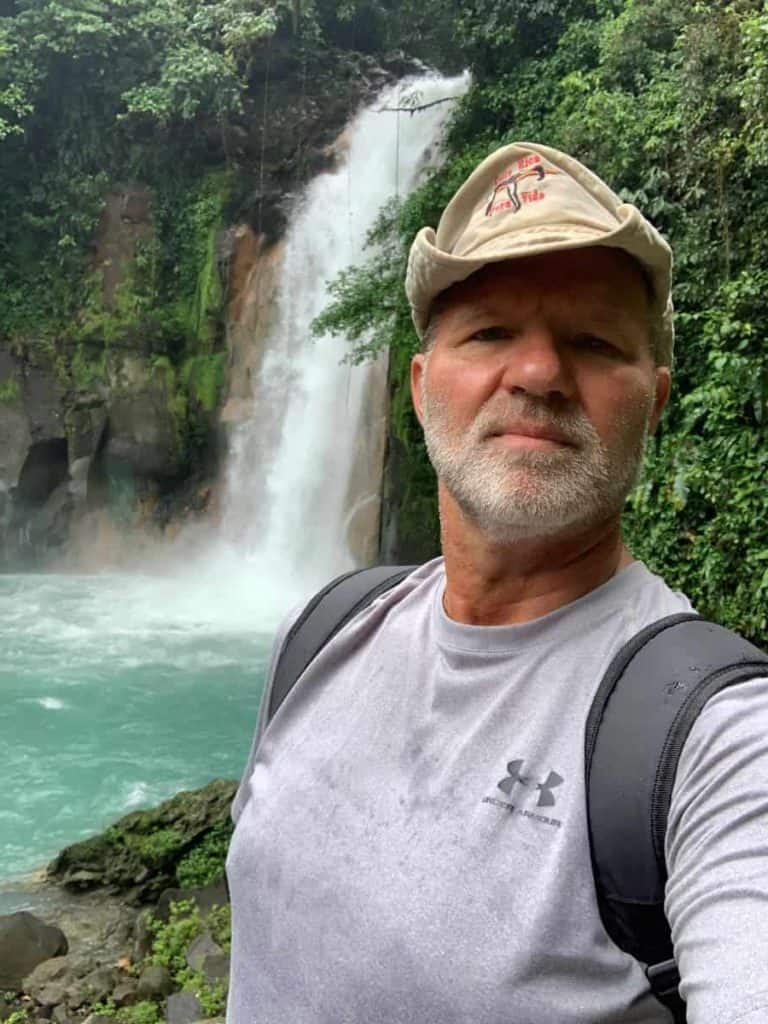
What do you dislike about Costa Rica? Do you miss anything from your past home?
I had to think long and hard before I could come up with an answer to that question. That should tell you that there is very little about living here that I don’t like. If I had to come up with something it is the way that government bureaucracies are spread around in the country. For example, in order to obtain my residency card, I had to make trips to seven different offices in five cities. I think the reason is that the government is designed to spread employment from its jobs throughout the country, in towns large and small. There is a level of equal opportunity for all Costa Ricans built into that system, and I get it. But it can make it difficult to accomplish things. In truth, that’s a pretty small dislike.
As far as missing anything from Arlington, Virginia; The only thing we miss a bit is the home we raised our girls in. But it was time for us to move on and let a new generation of children be nurtured by the home. I do miss one food item. I’m from Wisconsin and I love great cheese. The cheese available here is fairly expensive, and frankly not very good. But I’ll get over it.
What are the biggest adjustments you have had to make settling into expat life in Costa Rica? Did you experience any culture shock?
Life changed a lot for us. We moved from a 3-bedroom house to a 2-bedroom condo. We moved from a car-centric and hectic lifestyle to a place where we walk everywhere. We don’t even own a car here! We just rent or borrow one when we need to travel (there is a lot of informal car sharing here). We had to get used to being free from all of the ticking clocks, deadlines, commitments, demands, and stress of modern life in the US. In short, we had to learn to slow down and enjoy life. We had to learn that every conversation here is not just a means to complete a transaction, but a true discussion of everything that comes to mind. Ticos love to talk and share and take their time getting around to the matter at hand. They have taught me that something as simple as buying an orange from the lady who has the veggie truck on the corner can take a half-hour. There’s just so much to talk about!
Costa Rica is a diverse country. Why did you choose to call Tamarindo home?
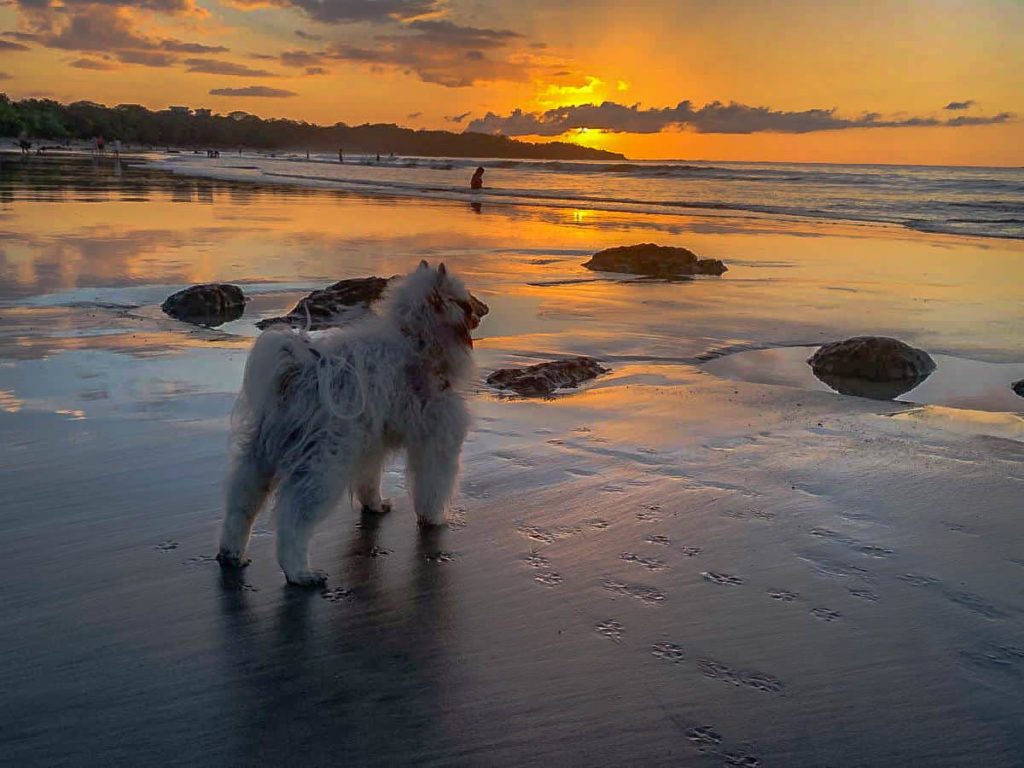
We chose the beach life on the Pacific Coast. The notion that we can live just a five-minute walk from a beautiful beach that is never crowded tops any other choice for us. That keeps us active, walking and swimming all the time. Also, all of the other areas of this small country aren’t that far away. We can visit them whenever we wish. We chose Tamarindo for a few reasons. First, there was the nachos sign. It’s not much in itself, but it suggests that Tamarindo is a funky little town that reminds me of Key West, Florida back when it was, well, Key West. Before the island got so commercialized. This is also a town that has a lot of tourism along with expats from many different countries, all blended in with the Ticos. It’s not unusual to walk the main beach street and hear five different languages in five minutes. For a small town, that kind of diversity of cultures is hard to find. Tamarindo also has a well-developed infrastructure. We have a good, clean and drinkable supply of water, 24-hour medical facilities, excellent internet and cell phone service, numerous grocery stores, and all the other things that make for a good life in a great little town.
Living In Costa Rica
In this part of the interview, Gary tells us what it’s like to actually live in Costa Rica versus just being a tourist.
Has it been easy meeting people and making friends? Have you made friends with locals or do you mainly mix with other expats?
Meeting people and making friends is one of the easiest parts of transitioning to Costa Rica. Every Tico we have met, from the guards at our condo gate, to the guy who services our air conditioning, to our favorite bartender, everyone has become a friend. As for expats, yes, we have made friends with some. One thing we enjoy is that the condo complex we live in has a number of units that rent to tourists via Airbnb and other services. So there is a constant flow of travelers from all over the globe. We have developed friendships with many of them and look forward to their return visits next year. It’s a blast! I can’t tell you how many birthday parties we’ve enjoyed since we moved here!
Can you give us a rough idea of your monthly cost of living in Costa Rica?
Let me set one thing straight. Many people regard Costa Rica as a “third-world” country. It is true that many of our roads are dirt or gravel. It is true that the average income is not high. It is also true that the economy here is actually very well developed. Health care is universally available (we pay $42 per month and ALL of our health care is covered by that), and there is a great diversity of high- and low-tech jobs here. All of which is to say, don’t expect to live here on pennies a day. Our condo is paid for, so all we pay is the monthly HOA fee of $200. Our electricity, water, cable and 2 cell phones total about $250 per month. Health insurance is $42.
Food costs can vary wildly. If you want to shop at the fancy grocery stores that look like you just plucked them out of some US suburb, you’re going to pay prices comparable, or maybe a little higher, than you would in that suburb. But if you are willing to venture into the more traditional Costa Rican food outlets, you’ll find great foods at prices that are at least 20-30 percent lower. We buy meats at a local butcher shop that are cut fresh in that (VERY clean) shop for about half the price of the fancy stores – and it’s a whole lot fresher. We buy fruits and veggies at shops that only sell those products for far less than at the grocers. It takes a little exploring to find the best places, but you can get locally grown (organic by default) produce and fruit for very low cost.
Another trick is to adapt your food choices to what is available here. By learning to cook with plantains instead of potatoes, for example, you can cut the cost of a meal significantly. If you insist on maintaining a North American diet, it’s going to cost you more than it would in the US. For example, our Thanksgiving turkey (we invited 5 new friends to our house for the meal) cost almost $40, three or four times what it would have cost in the US.
Plan A Never Happens: Going Expat to Costa Rica during the Covid-19 Pandemic
Gary has recently published his latest book “Plan A Never Happens: Going Expat to Costa Rica during the Covid-19 Pandemic” .
What spurred you to write this book?
It was a cathartic exercise, actually. I needed to vent the stress of what I had been through. Because of all of the Covid lockdowns and closings of government offices in the US, it took me nearly a year to gather all of the documentation necessary for us to apply for residency in Costa Rica. You wouldn’t believe the hoops I had to jump through. Well, you will when you read the book. When we got here, life instantly changed so much for the better that I realized I had to share the experience with others thinking about a move like this.
Anything you’d like to share with readers of the book?
I have had some very interesting reactions from readers. Most have told me that they were amazed at the determination I exhibited in maneuvering my way through the maddening maze of bureaucracy and Covid-19 issues that I had to run to make the move. Some told me they needed multiple glasses of wine to make it through. Others said the story made them so nervous they couldn’t put it down until they found out how it ended.
Conclusion
Any tips or you can give readers contemplating a similar move?
Do. Your. Homework. There is no substitute for knowing what you’re getting into before you do it. Find the place you want to go. Spend time there. Read EVERYTHING you can about it. When you plan your move, make sure that you know exactly what documentation you will need to take along. Talk with your banker and make sure he/she knows exactly what you are doing and how to handle your finances from afar. Devise a very comprehensive plan on every single detail involved in the move. Keep notebooks full of every step you take, and still need to take, to meet each requirement. Devise a countdown notebook for that last 30 days before you travel. You would be surprised how many last-minute details there are, and if you’re not prepared for them it can be overwhelmingly stressful. I did this and it eliminated nearly all of the stress. Each day we would just look at what had to be done that day, and ticked the items off. There were still surprises, as you’ll see in my book, but because we had a handle on all of the known issues, it meant we were able to resolve the unknowns with a lot less anxiety. In terms of the time and money it takes to make a move like this, budget them out as carefully and accurately as you can, then double both estimates. Now, you’re getting close to what it will really take.
One final tip: Enjoy the move once you have made it! Relax. Smell the sunflowers and the ocean breezes. Accept the happy state of mind that, here in Costa Rica, is called Pura Vida!
Epilogue
Thanks Gary for sharing your experiences moving to Costa Rica with us today and in your book. I’m sure your experiences will prove very insightful those contemplating a similar move. I can relate to so much of what you’ve said, I find myself nodding in agreement as you answered my questions. I even share your pain regarding cheese, a big block of cheese is always in our carry-on when we head to Costa Rica!
Plan A Never Happens: Going Expat to Costa Rica during the Covid-19 Pandemic can be purchased at Amazon in either kindle or paperback form.



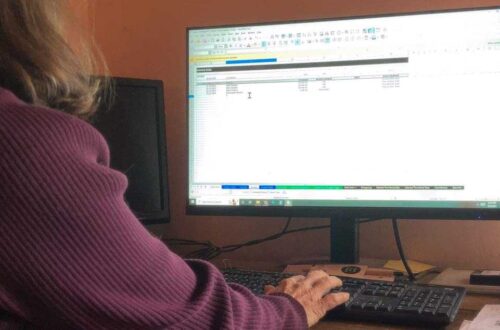


2 Comments
Donatela
Wow! I want to visit Costa Rica! It looks stunning!
Carolyn
You should definitely put a trip on your agenda. It is stunningly beautiful, with so much to do and so much diversity.